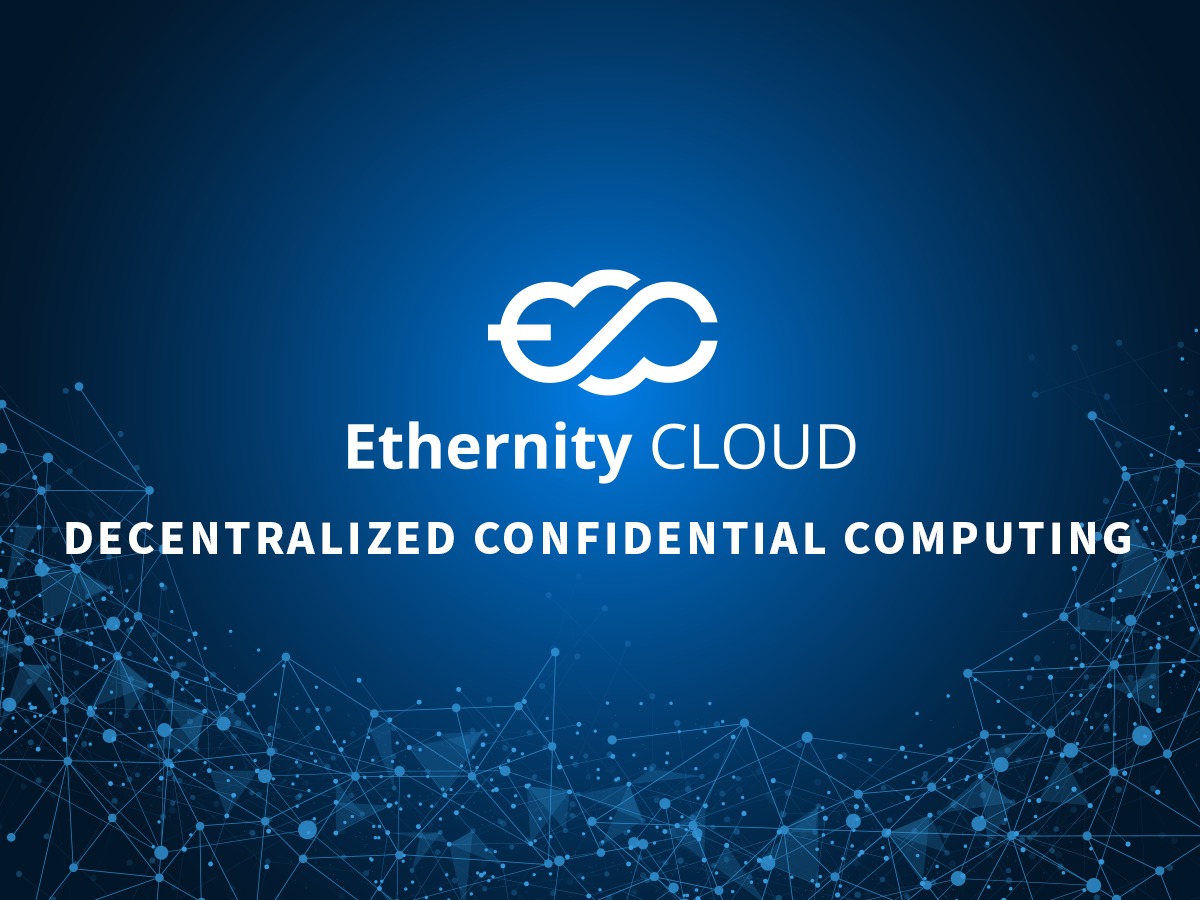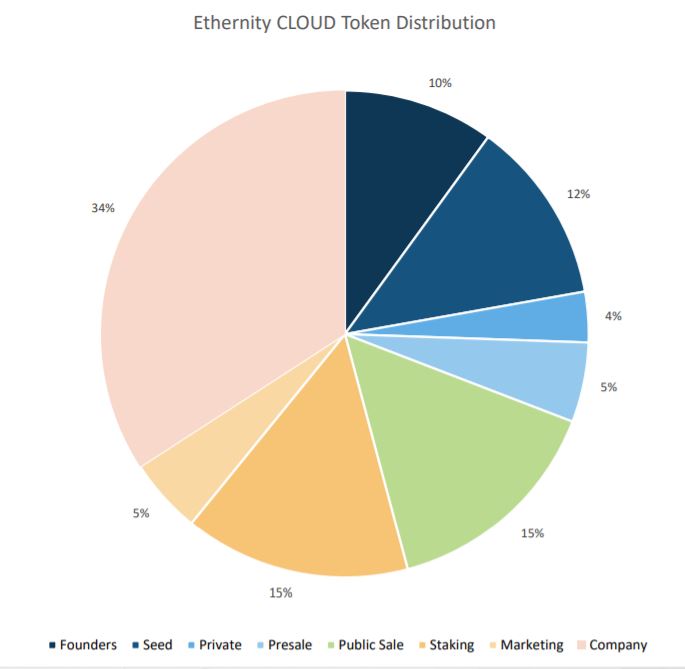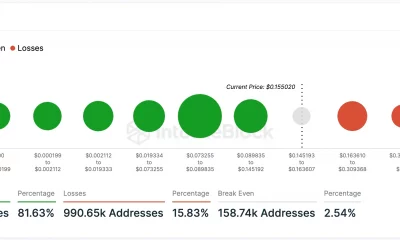Ethernity CLOUD: Leveraging blockchain to offer confidential computing solutions

In 2020 the cloud computing services had a revenue of $312 billion, according to the International Data Corporations’ Worldwide Semiannual Public Cloud Services Tracker. This included the services of IaaS (Infrastructure as a service), SaaS (Software as a service), and PaaS (Platform as a service).
While the industry itself is expected to grow even more in the coming years, it faces some major issues that need to be addressed. The cloud computing infrastructure inherently has a centralized nature which extends to the Domain Name System (DNS) and storage of user databases. The dependency on one or more cloud providers for service availability also results in the problem of SPOF or single point of failure.
Ethernity CLOUD intends to eliminate the middle-man and create a decentralized confidential computing platform that leverages distributed ledger.
What is Ethernity CLOUD?
Ethernity CLOUD leverages blockchain technology to create a platform that is decentralized and will allow cloud software to run as dApps. Ethernity CLOUD provides users access to an infrastructure that would help them run cloud software in a decentralized manner. They also get the chance to make profits by leasing their extra hardware.
The Ethernity CLOUD software is built on open-source services and strives to make decentralized cloud computing transparent, secure, and simple to use. The SDK option on the platform also allows users to start their own decentralized solutions.
Ethernity CLOUD’s architecture
The Ethernity CLOUD platform has 4 basic goals that form the crux of its architecture:
- A decentralized Domain Name System: Service buyers benefit from public services or blockchains that are decentralized and Ethernity CLOUD also supports developers in implementing these technologies on these dApps.
- Maintaining privacy: The platform uses strong encryption algorithms which are open and all communication happens over an anonymous network in order to preserve the buyer’s identity.
- Measuring performance: Service users get the chance to provide feedback by rating the service providers. This ensures that a more competitive environment is created, one where quality services are provided.
- Availability: A user’s services are available at all times because the design allows multiple instances of the same node to run and sync continuously.
Circular economy and Tokenomics
A circular economy refers to a well-rounded approach to economic development, one that is designed in a systematic way to provide benefits to the environment, society, and businesses alike.
Ethernity CLOUD believes in this approach since it allows people to monetize their free computing power. Users can act as a buyer (cloud user) or a service provider (miner) and lease out their cloud applications, along with their content, by leasing their spare hardware to other buyers.
The platform’s native token is ETNY which is ERC-20 compliant and has a maximum supply of 1000000000 tokens. 34% of the tokens are reserved for the company, 15% for staking and public sale, respectively, while another 12% is set aside for the seed. A 10% share is kept for the founders, a 5% share for the presale, and 4% for the private sale.
The Confidential Computing Consortium
CCC or the Confidential Computing Consortium works on bringing hardware vendors, cloud providers, and software developers to accelerate the adoption of Trusted Execution Environment technologies and standards.
Ethernity CLOUD has also become a member of the Confidential Computing Consortium which will enable investments across value chains.
The members of the Confidential Computing Consortium want to turn into reality the vision that was born with the emergence of the notion of “confidential computing”, and Ethernity CLOUD aligns with this goal.
The Ethernity CLOUD name now stands next to technology giants such as Accenture, ANT Group, Facebook, Google, Huawei, Intel, Microsoft, Cisco, or ByteDance.
Community support and a successful pre-sale
Ethernity CLOUD had a successful pre-sale, one where more than 90% of the tokens were sold in the first 9 hours itself while the remaining 10% were sold within the first half of the next day even though the minimum investment amount was $5000.
After a successful presale, Ethernity CLOUD’s subsequent partnership with the Institute for Internet security and Bank of Memories has helped the project gain even more recognition.
The registration for Public sale on the website is now live. Users can now register and show their interest in joining the Ethernity CLOUD community by providing their email address, name, and the amount they are willing to commit in USD. – Registration Page
Conclusion
Bringing a decentralized approach to cloud computing and making the transition from centralized to decentralized infrastructure smooth and easy is the main aim of Ethernity CLOUD.
The success of the presale highlights the community’s support for the project and it has subsequently helped it grow and develop. The team aims to build a fair ecosystem that leverages DLT (Distributed Ledger Technology), making Ethernity CLOUD a pioneer in the field of decentralized confidential computing.
For more information, check out their official website.
Disclaimer: This is a paid post and should not be treated as news/advice.







